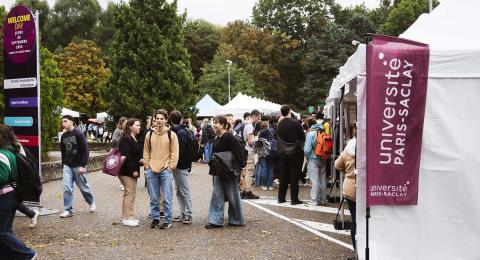Climate, Land Use and Ecosystem Services (CLUES)
The master's program is organised into a first semester that provides skills, knowledge, and expertise, followed by a second semester of practical experience in an internship, culminating in the writing of a thesis and a defence.
Information
Skills
Courses will promote integrated approaches through a multi-disciplinary curriculum combining natural sciences, social and economic sciences, and advanced courses in data management, analysis and modelling to promote sustainable development in rural and semi-urban areas.
Objectives
Terrestrial ecosystems are a core component of the climate system and a key provider of services to human societies via their production of biomass for food and fuels or their regulation of environmental resources. As the demand for these services is rapidly growing, these ecosystems have been manipulated and managed to an unprecedented extent, via changes in land occupation and use worldwide, in particular for agricultural and forestry purposes. Facing up to the current ecological challenges thus requires a careful understanding of ecosystem processes and services to design and implement management strategies that enhance ecosystem services in a changing global environment. The economic sectors targeted include agriculture and forestry but also the agri-food sector, energy and the bio-economy in general, while the programme will also be relevant to policy-making in the area of environmental regulation and natural resources management, from local to global scales. The overarching objective of this MSc programme is to provide students with the scientific knowledge, know-how and skills necessary to understand the functioning of terrestrial ecosystems in response to major drivers such as climate change, land-use change patterns and ecosystem management technologies. Graduates from this programme will possess in-depth knowledge of biosphere-climate interactions, acquire methods to assess ecosystem services, and be fully aware of the panel of technological options available in terms of land-use planning management to promote the sustainable development in rural and semi-urban areas.
Career Opportunities
Career prospects
Après Master + Doctorat : chercheur ou enseignant-chercheur
Après un master : Chargé(e) d’études
Services agricoles, environnement ou développement durable, aménagement des collectivités ou services de l’Etat
Organisations et associations de développement agricole ou de protection/conservation de la nature
Bureaux d'études spécialisés dans l'évaluation des impacts environnementaux
Entreprises du secteur privé, dont production agricole
Fees and scholarships
The amounts may vary depending on the programme and your personal circumstances.
Capacity
Available Places
Target Audience and Entry Requirements
Knowledge of biosphere-climate interactions from a biological and physical perspective.
Application Period(s)
From 02/02/2026 to 15/06/2026
Supporting documents
Compulsory supporting documents
Rank of previous year and size of the promotion.
Motivation letter.
List of other masters requested (excluding Saclay).
Professional project.
All transcripts of the years / semesters validated since the high school diploma at the date of application.
Certificate of English level.
Curriculum Vitae.
Additional supporting documents
Referring contact information (compulsory for non-international applicants).
Letter of recommendation from a trainee.
Certificate of French (compulsory for non-French speakers).
Detailed description and hourly volume of courses taken since the beginning of the university program.
VAP file (obligatory for all persons requesting a valuation of the assets to enter the diploma).
Document indicating the list of local M2 choices available here : https://urlz.fr/i3Lo.
Supporting documents :
- Residence permit stating the country of residence of the first country
- Or receipt of request stating the country of first asylum
- Or document from the UNHCR granting refugee status
- Or receipt of refugee status request delivered in France
- Or residence permit stating the refugee status delivered in France
- Or document stating subsidiary protection in France or abroad
- Or document stating temporary protection in France or abroad.










